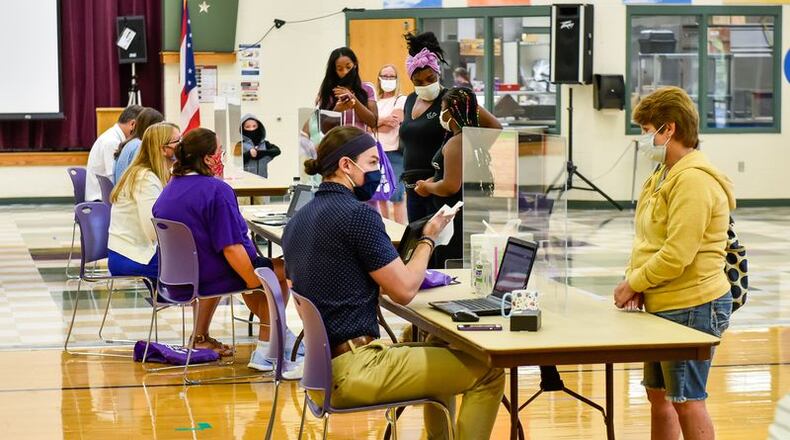It’s the first campaign of its kind in this area. Middletown officials moved to provide take-home devices for learning and internet hotspots for all students this school year, and the fundraising campaign is working to cover the costs of that internet access going forward.
Middletown was the second district in southwest Ohio to announce during the summer it would open the current school year with all-remote learning. And for the first time, the district distributed thousands of free laptops to students.
School officials, working with those from the Middletown Community Foundation, are now trying to sign up donors in the Sponsor a Student program to ensure low-income families in the city always have internet access for their school-age children.
Potential donors are being asked to pay $15.17 per month to sponsor a student’s expense for internet access or donate $183 a year.
“Through a partnership with T-Mobile we are giving hotspots to families without internet, but it comes with an on-going cost. It is our hope the Sponsor A Student campaign will provide reliable internet to our students long after the pandemic ends,” said Elizabeth Beadle, spokeswoman for the 6,300-student school system.
Chris Brown, superintendent of the Butler County Educational Services Center (BCESC), said Middletown’s approach is unique for the area and rare nationwide.
“This is a relatively new concept around the country whereby districts seek out sponsorship for unique programs or in the case for individual students,” said Brown.
“Similar programs have been done to fund new or existing programs in districts or even in individual school buildings. Walnut Hills High School has funded programs through their extensive alumni base and many districts have sought out alternative funding sources for athletic facilities."
The fundraiser is tied in with a recent $25,000 donation to the city schools from the Middletown Community Foundation to help more students have the capacity to learn from home.
“When the coronavirus quarantine started the district let us know about the equity issue in the community,” said Traci Barnett, CEO of the Middletown Community Foundation.
“Students without resources at home are at a direct disadvantage in the learning process, and not just in the remote learning scenario. The Foundation was compelled to support the efforts of the Middletown School District to provide technology resources to families doing without."
But Jon Graft, superintendent of Butler Tech, said a better long-term plan is for digital learning and internet availability to be approached like a public utility.
“We continue to advocate that wi-fi is an essential school supply,” said Graft. “Just as students are issued textbooks and lab equipment in order to access the curriculum, wi-fi and connectivity to the internet is essential to achieve access and equity for all students.
“Having to rely on private funding efforts to provide a basic need to include students for marginalized populations is a short-term solution. But it is what schools are currently facing to meet the needs of students."
About the Author

